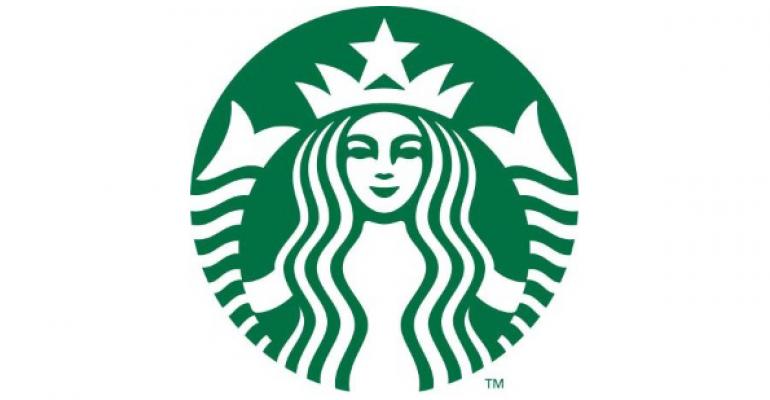Starbucks is expanding the offer of beer and wine in the evenings to “multiple cities” following strong results in test markets, the Seattle-based company’s chief executive said Wednesday.
At Starbucks’ annual shareholder meeting in Seattle, Howard Schultz, the company’s chair, president and chief executive, said the alcohol and “light bite” offerings will be a bigger part of Starbucks’ business in time. So far, sales have been incremental, he said, but the response in test markets has been positive.
Starbucks began testing the beer-and-wine addition, along with a compatible small-plates menu, in 2010. The food offerings varied by region, but the goal was to build sales during a traditionally slow daypart for Starbucks, which sees most of its sales earlier in the day.
RELATED
• Starbucks to roll out innovations in mobile platform
• Starbucks: 2013 best year in company history
• Starbucks news at NRN.com
In an interview after the meeting with Bloomberg News, Starbucks chief operating officer Troy Alstead said evening food and alcohol offerings are now in about 40 units.
While beer and wine won’t work in all locations, outlets in urban areas near other restaurants and theaters have found success with it, he said.
Schultz reiterated the company’s commitment to do for tea what Starbucks has done for coffee, saying a new line of Teavana products will soon be added to the coffeehouse menu, including handcrafted tea drinks, loose-leaf teas, tea-inspired food offerings and related merchandise.
Last year, Starbucks debuted its new Teavana Fine Tea + Tea Bar concept in New York and Seattle. Schultz said additional units will open in Chicago, Los Angeles and more in New York City later this year.
At the shareholder meeting, Starbucks also unveiled a new chai tea blend developed by and named for actress and former talk show host Oprah Winfrey, who joined Schultz on stage. To be called the Teavana Oprah Chai Tea, the new blend will be available starting April 29 in all locations across the U.S. and Canada, and Starbucks will make a donation for each product sold to the Oprah Winfrey Leadership Academy Foundation, which benefits youth education programs.
Schultz also spotlighted the new Starbucks app that debuted Wednesday and includes a new “shake-to-pay” feature that allows guests to find their mobile pay screen quickly. The new app will also give guests the ability to tip digitally for the first time.
He also outlined to shareholders what was a record 2013 for Starbucks, saying the 20,000-unit chain was only in the early stages of growth.
“If Starbucks were a 20-chapter book, we’d only be in chapter four or five,” said Schultz.
Now with a market cap of about $57 billion, Starbucks has the potential of being a $100 billion company, he said.
The rollout of the La Boulange bakery products to all U.S. locations by the end of 2014 has boosted sales, and a line of lunch products is also in test. Handcrafted carbonated beverages are also coming to units this summer.
Schultz weighs in on minimum wage
(Continued from page 1)
During and after the meeting, shareholders and journalists asked Schultz about a wide range of topics, from his opinion on Russia’s move into Crimea (LINK: http://nrn.com/international/crimea-crisis-complicates-restaurant-business-russia-ukraine) (he declined comment) to why there aren’t more gluten-free products on Starbucks’ menu (they continue to test such products, he said).
When asked about the proposed minimum wage increase to $15 per hour in Seattle, Schultz warned that it could have “unintended consequences of job loss,” according to the Seattle Times.
He explained that the $15-per-hour wage could backfire on workers because the increase will hurt small businesses — especially restaurants — already struggling with the high cost of food, energy and labor.
“That would not be the case at Starbucks,” he added, “but I suspect that most companies, especially small and midsized companies, would not be able to afford it.”
To CNN, Schultz praised President Barack Obama’s efforts to increase the minimum wage, but he stopped short of supporting the president’s $10.10 per hour proposal. A $10-per-hour minimum wage could hinder companies from providing benefits to workers, he said.
During the shareholder meeting, Schultz highlighted the growing gap between the “haves and have nots,” saying, “We have to ask ourselves as business leaders: What can we do to ensure we’re bringing everyone along on this journey?”
Starbucks employees tend to be paid more than minimum wage, and the coffeehouse chain offered insurance benefits to part-time workers long before any federal health care mandates, along with stock options.
“We’re not a perfect company,” he said. “We do make mistakes and have challenges. But we’re trying to do the right thing.”
Contact Lisa Jennings at [email protected].
Follow her on Twitter: @livetodineout





